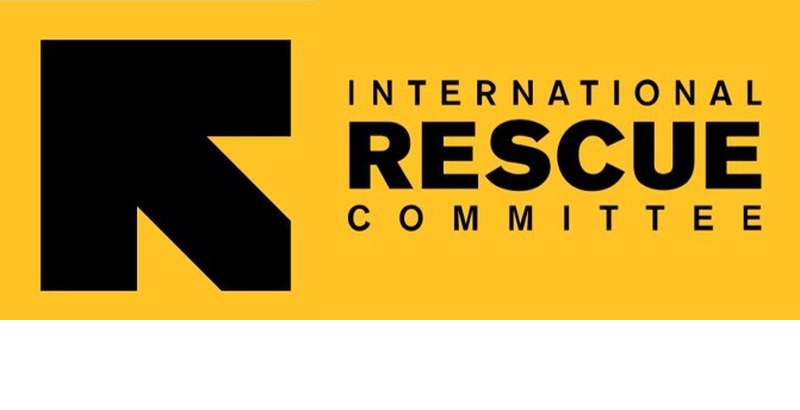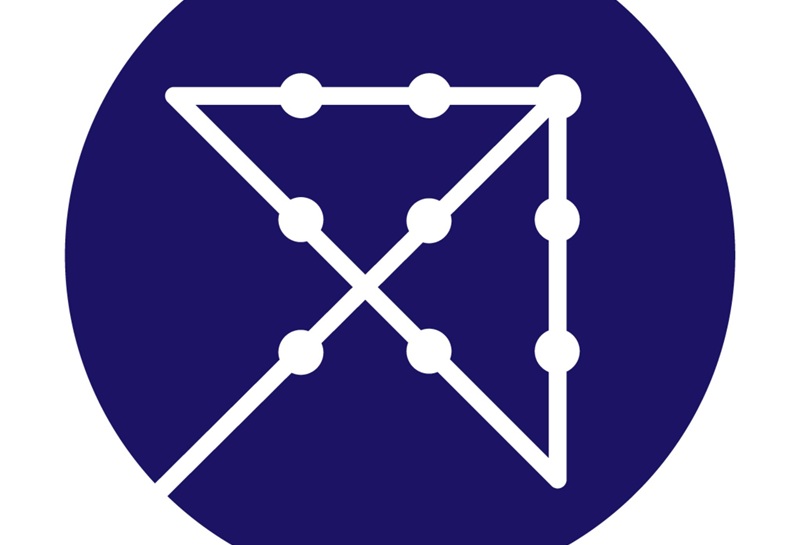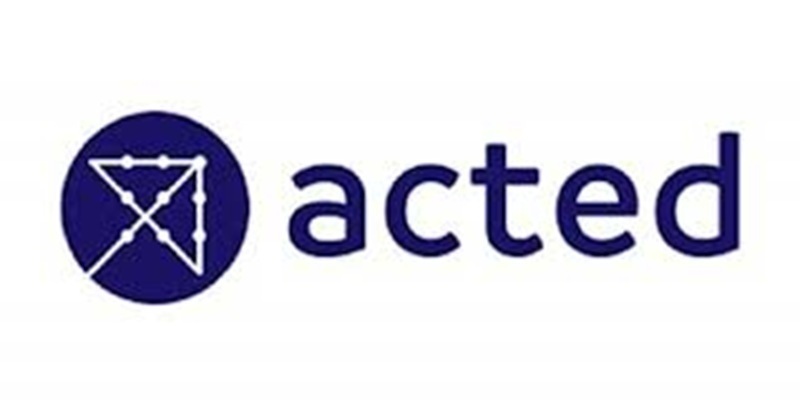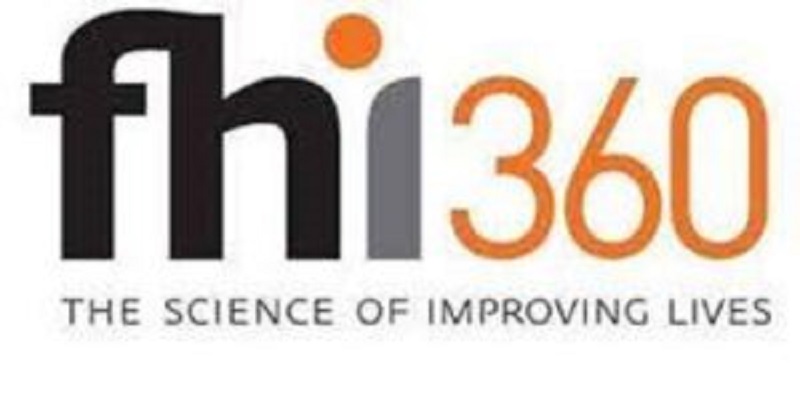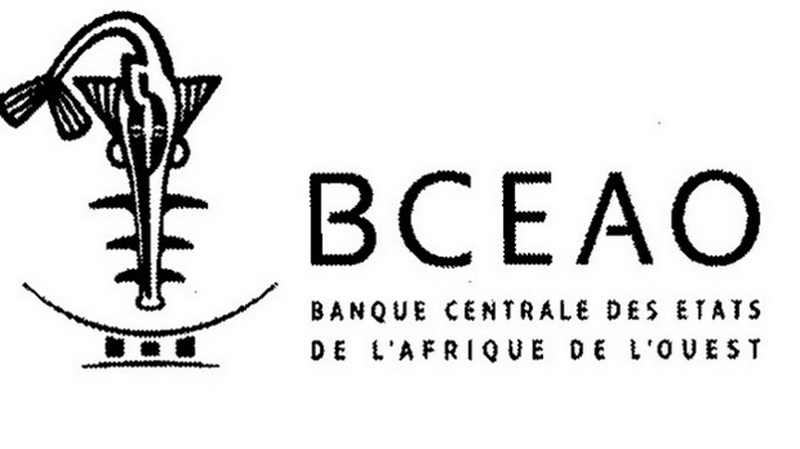The IRC has been present in Nigeria since 2012 when the organization responded to flooding in Kogi state. In February 2014 the IRC moved into Adamawa State in NE Nigeria to provide humanitarian interventions through a multi-sectoral, integrated approach for conflict affected populations. IRC Nigeria now operates a country office in Abuja and field offices in Mubi, Michika and Yola of Adamawa State, Maiduguri, Monguno and Bama in Borno state and Damatru of Yobe State. Currently, IRC Nigeria implements programs primary health care, nutrition, environmental health, women’s protection and empowerment, protection, child protection, education, food security & livelihoods
Job Overview
This a strategic role in IRC Nigeria that works closely with the country program teams to improve program quality, providing technical leadership, coordination and strategic support to program design, planning, monitoring, evaluation, accountability, learning and partnership commitments in line with Strategy 100 impact goal and data ambition. Core responsibilities includes ensuring IRC Nigeria and its partners has a strong MEAL system in place, implemented as intended and reported to support program technical coordinators, managers and implementing partners to deliver desired outcomes and impacts.
The MEAL Coordinator is a member of Country Leadership Team and reports directly to Deputy Director of Programs with matrix management and technical support from the Regional Measurement Action Advisor, West Africa. The role will also have close working relationship Senior Program Coordinator, sectoral Technical Coordinators, Technical Adviser’s, and grants management and partnership team.
Main responsibilities
Strategic Leadership and Partnership
• Establish and drive common strategies and approaches to the country’s Monitoring, Evaluation, Accountability, and Learning processes that reflect and contextualize Strategy 100 and the Country Strategic Action Plan and ensure that the MEAL structure is fit for this purpose.
• Lead all aspects of MEAL (including client feedback mechanisms) functions across multiple sectors and multiple geographical areas/ large portfolio and or complex environment.
• Develop, coordinate, and strengthen capacity sharing partnerships with MEAL counterparts of partner agencies, local organizations, and government.
• Represent the IRC on MEAL at internal and external meetings, forums, and other events.
• Champion design, access and use of data by leaders and partners for shared learning and evidence-based decision-making.
• Shape and implement MEAL systems and approaches that meet IRC standards and practices, that meet project and program needs, enable accountability to clients, partners, and donors, and foster program learning.
• Reinforce integration of cross-sectoral priorities in MEAL, including gender, protection, safeguarding, disaster risk reduction, Diversity-Equality-Inclusion and Do No Harm.
• Work with country leadership and program team to promote a program quality culture and evidence-based decision making in programming within IRC and its partners
• For IRC cross-cutting Nigeria MEAL priorities, design, resource and deliver task specific action plans in collaboration with Program Coordinators and the SMT. Plans need communicate to key IRC stakeholders’ requirements for budget, people, systems and technical support, alongside risk mitigation strategies.
Technical Oversight
• Technically support IRC Nigeria to meet impact goal and data ambition set out in Strategic Action Plan (SAP 2022 – 2024 and IRC’s global Measurement and Client Responsiveness Units’ standards and practices for improving monitoring practice and use of data within the organization.
• Technical oversight for development of rigorous MEAL systems and processes and ensure periodic and systematic learning in informing program design and adaptation for IRC and partners.
• Advocate, resource and provide strategic technical leadership and oversight for the standardized digitization of all IRC Nigeria dataflows, whenever possible using mobile data technology and the automated presentation of data in online dashboards to enhance timeliness and quality of data collection, analysis and visualization.
• Provide technical leadership to IRCs effort in meeting its internal and external accountability commitments through the implementation of sound accountability, client feedback and response mechanisms
• Provide technical leadership and coordination for strong monitoring system and processes throughout the project cycle from the design, implementation to close-out and learning including:
o Using learning and evidence from internal and external sources including previous projects to inform proposal design and Theory of Change.
o Developing and operationalizing, logical frameworks, MEAL plans, data collection tools, processes for data management, clients feedback approaches, quality checks and audits, and data visualization.
o Developing and advocating for adequate MEAL budget and staffing structure for all projects.
o Producing high-quality data, analysis, reports, presentations, and dashboard of key findings that foster learning and decision-making and share in key meetings such as project cycle meetings and strategic senior management team meetings.
• Provide technical oversight and coordination and support for surveys, assessments, and other discrete learning activities, and building related staff and partners competencies through
o Providing supports to sector leads and support staff to develop the TORs for needs assessments and surveys.
o Provide supports to sector leads and support staff to develop detailed work plans and budgets for needs assessment and survey activities.
o Assist in selecting/defining the sampling strategy.
o Provide supports to sector leads and support staff to clean and conduct descriptive analysis of needs assessment and survey data.
o Responsible for conducting advanced analysis (inferential statistics) of needs assessment and survey data.
o Provide the MEAL inputs for needs assessment and survey report writing.
o Provides inputs from survey and assessment data for tracking of overall progress on projects, programs, and strategic priorities
Strengthening program designs, outcome, and planning
• Provide support, guidance, and work closely with sector leads, grants teams and partners to ensure that project design in proposals is logically sound, beneficiary focused and contextually appropriate, based on learning from previous projects and technical best practice, and includes a Theory of Change and SMART log frame (with IRC core indicators and enabling assessment of project progress, quality, outcomes, and if relevant impact).
• Support sectors leads in ensuring that detailed and feasible project specific monitoring plans are developed that: i) provide an indicator matrix, ii) map MEAL roles and responsibilities of project and support staff, iii) consider ethical and safe collection and storage of data, iv) consider data quality audits, v) consider storing, protecting, and sharing project documents, and vi) consider the end of project learning review.
• Support and guide sector leads to determine which monitoring activities will take place and which data collection methods will be used to ensure their adequacy and appropriateness.
• Work with sector leads and SPCs to ensure that monitoring activities are adequately resourced, with sufficient project and support staff and adequate budget.
• Support and guide sector leads and support staff to ensure that the project work plan includes monitoring activities (or that a stand-alone monitoring work plan is in place), is up-to date and progress tracked.
• Supports sector leads and support staff to develop, translate, pilot, and finalize data collection tools as needed.
• Provide support to sector leads and support staff to establish project/program MEAL data collection tools, databases and dashboards that optimize the use of IRC Measurement Technologies and align fully to IRC Nigeria, regional and global expectations.
• Assist in training of staff in data collection methods, management, analysis, and action techniques.
• Work with sector leads and support staff to ensure that data is collected, entered, and cleaned in databases, and reviewed in tracking sheets and dashboards on a regular basis, alongside routine Data Quality Audits.
• Responsible for providing consistent, supportive supervision to strengthen staff performance as necessary to meet monitoring objectives and ensure data quality.
• Responsible for conducting and coordinating data quality audits of projects and programs to identify and resolve systemic problems affecting data quality and documenting and storing findings in project files on Box.
• Assist in conducting regular analysis and action planning meetings to (1) compare data against project milestones, targets, and quality expectations across project sites; (2) identify issues requiring further attention; (3) define action needed and assign responsibility and deadlines,
• Work with sector leads and support staff to provide MEAL inputs for reports written during project implementation.
• Work with sector leads and support staff to share reports written during project implementation with donors and other stakeholders and upload them to project files.
• Provide accountability for the storage of documents and data in alignment with IRC regional and global protocol.
Project Cycle Meetings and Learning
• To support project teams on project management work occurring in and around these meetings as it relates to MEAL. Specifically, key responsibilities here (largely in line with current MEAL responsibilities) include:
o Joining meetings as directed in the Project Cycle Meetings Guidance – participates in every PDM, POM, PIM, and PCM.
o Supporting project teams on key MEAL-related tasks – specifically, MEAL staff in Project Cycle Meetings will support MEAL plan development as well as data collection and interpretation
o Providing MEAL inputs into decisions across all areas of project management
• Lead and support in development and implementation of country knowledge and learnings agenda.
• Acting as an enabler by supporting program coordinators to achieve desired outcomes/impact while learning from evidence
• Assist in conducting and documenting end of project learning reviews, and sharing lessons learned and best practices, incorporating these into new project designs.
• Assist in identifying, documenting, storing, and sharing lessons learned that have implications for refinement of best programmatic practice.
Strengthening Country program MEAL
• Provide technical leadership and coordination for data compilation at overall country and project level, including the presentation of data for cross-cutting strategic objectives (safety and power)
• Responsible for establishing overall country program core indicator tracking sheets &/or dashboards.
• Responsible for establishing cross-sectorial approaches to monitoring (for example for activities being undertaken by more than one sector, or beneficiary counting).
• Assist in completing quarterly Monitoring for Action project assessments and identifying projects in need of targeted support.
• Responsible for Identification of MEAL capacity gaps in the country program and design and deliver strategies to fill identified gaps. Also create an atmosphere of individual and collective learning that supports professional development while meeting organizational expectations
Staff Performance Management, Learning & Development:
• Hire, supervise, and build the capacity of team members in relevant technical and management competencies.
• Develop and implement remote management capacity building approaches to build the strengths of the team in Syria.
• Coach, train, supervise and mentor direct-report staff, including communicating clear expectations, setting annual performance objectives, providing regular and timely positive and constructive performance feedback, and providing documented semi-annual performance reviews.
• Maintain open and professional relations with team members, promoting a strong team spirit and providing oversight and guidance to enable staff to successfully perform in their positions.
• Approve and manage all time, attendance and leave requests to ensure adequate departmental coverage; ensure monthly, accurate timesheet submission and carry out probationary reviews.
• Hold high-quality meetings with each direct report on a regular and predictable basis, at least monthly.
• Provide a measurable development plan including on-the-job learning with the aim of strengthening technical capacity, exchanging knowledge within the team and providing guidance on career paths.
• As required identify staff performance issues and work with Human Resources to document and address these in accordance with the National Staff Employment Policies.
• Maintain open and professional relations with team members, promoting a strong team spirit and providing oversight and guidance to enable staff to successfully perform in their positions.
• Promote and monitor staff care and well-being. Model healthy work-life balance practices. Support appropriate interventions in response to identified staff care needs of both national and international staff.
• Look for opportunities to support staff in their career growth, where appropriate. As part of succession plan and nationalization goals, identify, train, and develop capability and capacity of national staff to successfully transition role and responsibilities, by the end of assignment.
• Adhere to and act in accordance with the IRC Global HR Policies and Procedures and communicates through word and example a high standard of compliance with all applicable policies and regulations.
Coordination & Representation
• Participates in Field level coordination forums
• He/She is a member of Country Leadership Group and should ensure full participation in the forum.
• Represents the organizations in MEAL forums involving other humanitarian organizations where applicable and as need arises
Key Working Relationships
Position Reports to: Deputy Director for Programs
Indirect/Technical Reporting: Regional Measurement Advisor, West Africa
Position directly Supervises: Senior MEAL Manager, Senior Consortium Managers – HeRoN, Senior Consortium Manager – BHA consortium etc
Key Internal Contacts:
Country Program: SMT, Senior Program Coordinators, Senior Grants Coordinator, Senior Partnership Manager, Compliance Coordinator, Sectors Technical Coordinators, Consortium Team Leaders, Senior Advocacy Manager, Field Coordinators and Senior Area Managers etc.
Region/Global: Regional Measurement Advisor, West Africa; Regional Senior Technology Specialist etc
Key External Contacts: Consortium Partners, Local Partners etc
Job Requirements:
Education: A University degree in a relevant subject area (statistics, monitoring & data management, social science, public health, economic development, or a related field) – a technical degree together with additional relevant work experience may substitute for education.
Work Experience:
• Minimum four (4) years of international MEAL management experience within the development/ humanitarian sector, at least 2 of which are at management level preferably in Africa.
• Nationals with the required skills and experience in country MEAL Management are encouraged to apply, international experience not needed rather a strong demonstrated capacity in MEAL Management in complex environment will be an added advantage
Demonstrated Technical Skills:
• Leadership experience and proven technical skills in setting up quality M&E/MEAL system that leads to evidence-based decision-making for multi-sectorial and multi-donor funded programs.
• Demonstrated ability to transfer knowledge to diverse audiences through training, mentoring, and other formal and non-formal methods together with strong presentation and reporting skills;
• Strong management and social skills and proven track record to work with diverse groups of people in a multicultural environment.
• Self-motivated with excellent organization, planning, and analytical skills – able to work without close supervision, including prioritizing work and multi-tasking.
• Proficiency and experience with mobile data collection such as Kobo, CommCare, ODK Collect are crucial as well as proficiency with Microsoft Excel, SPSS, SATA, or other similar software.
• Knowledge of Tableau, PowerBi or GIS software are additional assets.
• A strong understanding of accountability and proven ability to build Client Feedback Systems is a distinct advantage.
• Willingness to travel to various regional and field-level offices – (50%).
• Fluency in English (written and speaking) in addition to Language (specify which language/s and fluency level are required).
• Proven technical skills in monitoring and evaluation, including experience with multi-sectorial and multi-donor funded programs and experience with qualitative and quantitative data collection and analysis.
• Proven abilities in developing monitoring plans, data collection, information management, use of databases, and analysis and performance monitoring, inclusive for implementing partners.
• Excellent people management skills
• Demonstrated ability to train and build capacity of staff, implementing partners and others.
• Comprehensive knowledge of humanitarian accountability principles and their translation into practice.
• Strong planning, organizational and interpersonal skills.
• Excellent analytical, presentation, and reporting skills;
• Proven ability to work creatively, innovatively, and effectively with limited direct supervision and taking initiatives
• Strong commitment to IRC’s mission, purpose, and values
Languages:
• English is a MUST.
• Knowledge of languages spoken in northeast Nigeria (Hausa and Kanuri) is an advantage
Computer/Other Tech Requirements:
• Full professional competency in Microsoft Office Suite, especially Word, Excel, Outlook, and PowerPoint.
• Excellent database, data management and data analysis skills, with strong experience using software applications such as Microsoft Excel, Access, SPSS, STATA.
• Proven knowledge and experience of designing and delivering digitised and automated MEAL dataflows using CommCare and Power Bi, or similar software, and experience of GIS mapping is preferred.
Ability to Travel: 50% field travel to locations where IRC has presence in Nigeria
Standards of Professional Conduct: The IRC and IRC workers must adhere to the values and principles outlined in the IRC Way – Code of Conduct. These are Integrity, Equality, Service, and Accountability. In accordance with these values, the IRC operates and enforces policies on Beneficiary Protection from Exploitation and Abuse, Child Safeguarding, Harassment-Free Workplace, Fiscal Integrity, Anti-Retaliation, Combating Trafficking in Persons and several others.
Gender Equality: IRC is committed to narrowing the gender gap in leadership positions. We offer benefits that provide an enabling environment for women to participate in our workforce including parental leave, gender-sensitive security protocols and other supportive benefits and allowances.
Working Environment :IRC is an Equal Opportunity Employer. IRC considers all applicants on the basis of merit without regard to race, sex, color, national origin, religion, sexual orientation, age, marital status, veteran status, disability or any other characteristic protected by applicable law.

